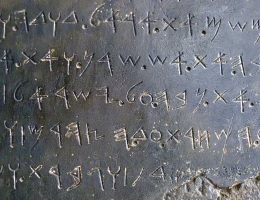2 Kings 3:24 – 27 presents profound theological and ethical challenges as King Mesha’s human sacrifice leads to the Israelite army’s retreat. This narrative questions modern views on divine will and justice, prompting a critical reassessment of ancient religious practices. Delve deeper into these themes and critically explore the implications of this biblical passage.
The article critically examines and question the inclusion of private remarks and logistical details within a text considered divinely inspired. By exploring the implications of these mundane elements, we aim to challenge the traditional understanding of “divine inspiration” according to Christians and the overall relevance of 2 Timothy 4:9 – 13 within the text of the New Testament.
But the first of the four gospels, i.e., the Gospel according to Mark, apparently did not receive Paul’s memo. And this is a very important point as we keep in mind that each of the gospels were initially divorced from each other and were written in different localities for different audiences.
Instead of writing a full-scale biography of Jesus of Nazareth, I want to focus on some aspects of the life and teaching of Jesus of Nazareth that are commonly overlooked by most Christians. Any attempt to reconstruct the historical Jesus (as distinct from the incarnate deity of ecclesiastical faith) needs to take into account all the recoverable data about Jesus, much of which has been ignored by many Christians because of its’ embarrassment to Christian orthodoxy. Jesus’ reported sayings in the Gospels are frequently subjected to tortuous exegesis by fundamentalist Christians to make them fit later church tradition. Paradoxically, the data has been critically examined by none other than Christian scholars themselves.
The authors of the New Testament have often quoted passages from the Old Testament, claiming such statements to be prophecies fulfilled in the person of Jesus Christ. The number of such quoted passages is actually very high. Among the evangelists, Matthew is the one having made this phenomenon characteristic to his Gospel. The prophecy carries a very important place in the Christian theology. Every Christian knows about the prophecies of the books of Psalms, Isaiah, and Daniel related to the childhood, life, mission, and death of Jesus. To every Christian, these prophecies are the clear evidence of the truth of Gospels and mission of Jesus in general. The problem is that according to the Bible, there exists true prophecies as well as false ones. Hence the question arises on the necessary criteria to distinguish a false prophecy from a true one.






